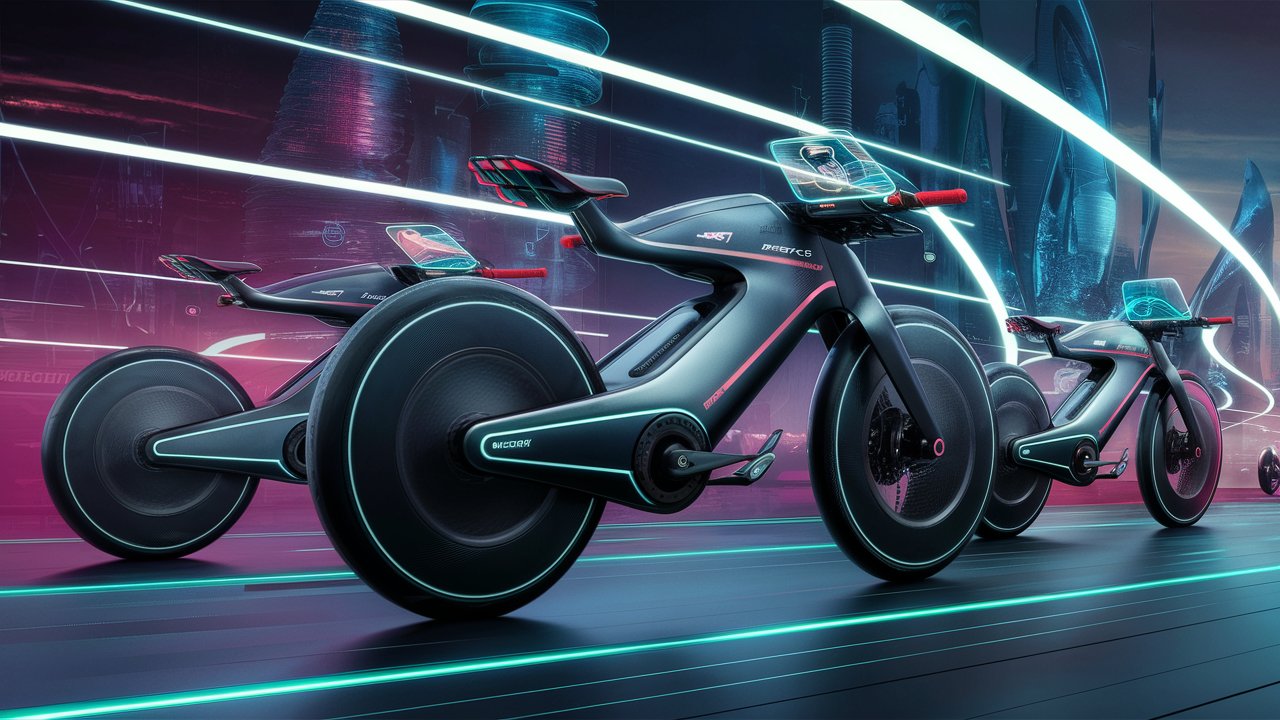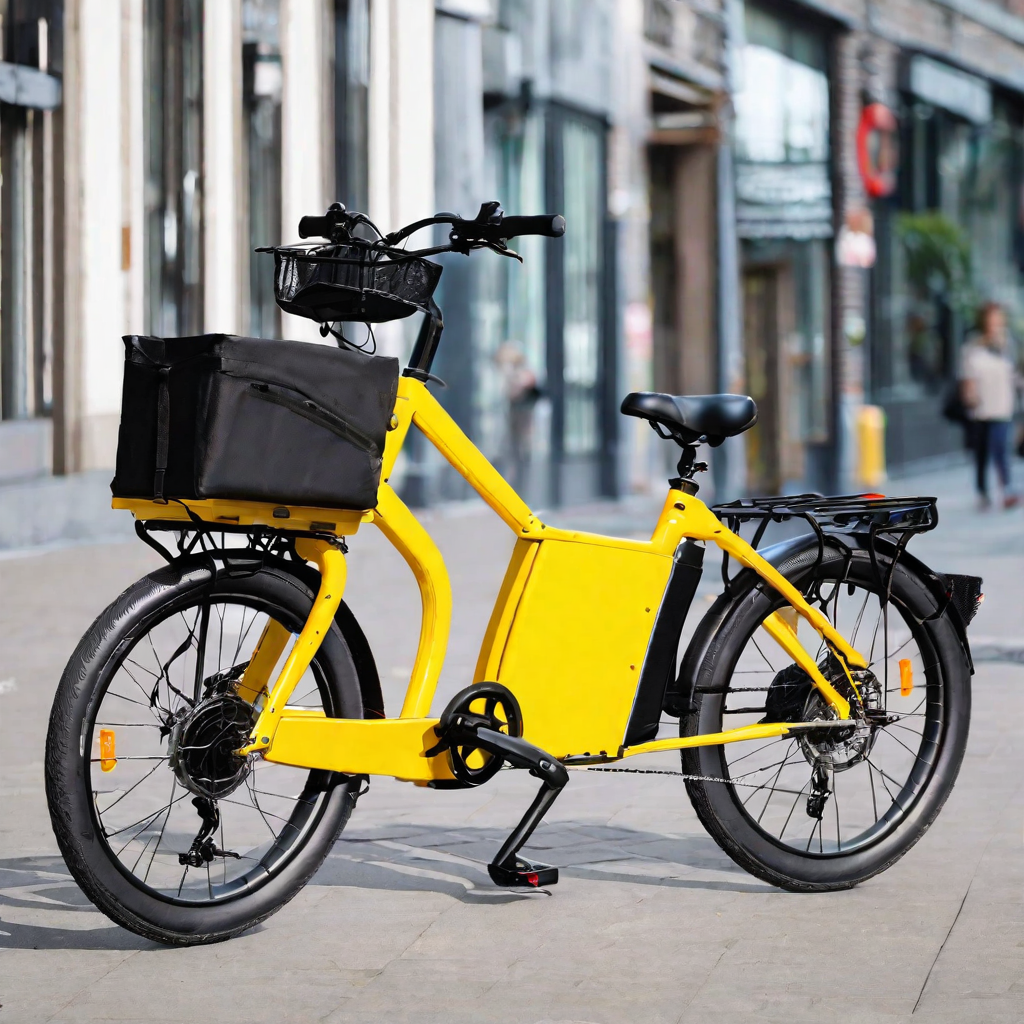Electric Cargo Bikes for Deliveries
Key Takeaways:
| Usage | Benefits | Considerations |
|---|---|---|
| Food Delivery | Lower costs, sustainability, accessibility | Range, storage, reliability |
| Courier Service | Beat traffic, parking savings | Load capacity, components, weather issues |
| Parcel Delivery | Reduce emissions, PR appeal | Range limits, cargo space, long distances |
Introduction
Electric cargo bikes provide an eco-friendly and efficient way for businesses to handle local deliveries. With the power assist of an integrated electric motor, cargo ebikes can haul substantial loads over urban distances quickly while eliminating fossil fuel consumption.
Everything from restaurants and caterers to corporate couriers and shipping providers are utilizing ebikes customized for cargo capacity to reimagine urban transportation. This article explores how electric cargo bikes enable more sustainable deliveries for key sectors.
Food Delivery Services
Food delivery apps and restaurants are leveraging electric cargo bikes to provide pedal-powered meals on demand.
Benefits
- Lower Costs – No gas bills and parking fees. Ebikes have 60-80% lower operating costs than delivery vans.
- Sustainability – Zero emissions transportation connects brands to eco-conscious consumers.
- Accessibility – Ebikes access pedestrian zones regular delivery vehicles cannot. Faster deliveries in congested cities.
- PR Appeal – Media and customers love the eco-friendly delivery approach. Provides a competitive edge.
Considerations
- Limited Range – Food must stay hot or cold. Range needs allow quick distribution.
- Food Storage – Insulated bins keep orders at proper temperatures during transport.
- Reliability – Consistent deliveries are crucial. ebikes require solid maintenance.
- Terrain – Hilly routes can challenge cargo ebikes when loaded down. Plan smart routes.
Electric cargo bikes enable sustainable meal distribution with major cost savings compared to gas vehicles. Custom storage keeps food fresh.
Courier Services
Corporate courier networks and interoffice mail services are utilizing electric cargo bikes to improve urban route efficiency.
Benefits
- Beat Traffic – EBikes use bike lanes to bypass congestion and get around faster than vans.
- Parking Savings – No circling for parking spots. EBikes park right at destinations.
- Scheduling Freedom – Point to point trips easier to batch and route on short notice.
- Eco-Branding – Reinforces corporate sustainability initiatives and messaging.
Considerations
- Load Capacity – Large document loads may require multiple ebikes or trailers.
- Component Durability – Commercial use demands robust parts selection like brakes and tires.
- Weather Issues – Riding in rain or other inclement weather is more challenging.
- Recharging – May need additional batteries or charging stations spread across the city.
Ebikes optimize courier efficiency and provide a green transportation solution for interoffice needs and legal/medical deliveries.
Parcel and Package Delivery
Major shippers are piloting electric cargo bikes for last mile package delivery:
Benefits
- Emissions Reduction – Replaces diesel vans with zero-emission transportation for eco-friendly delivery.
- Public Relations – Eco-conscious consumers and media love the sustainability initiative.
- Cost Savings – Lower operating costs than large delivery vans in urban areas.
- Accessibility – Bikes navigate congested city centers and pedestrian zones better than large vehicles.
Considerations
- Range Limits – Long daily mileages and heavy cargo impacts feasible range.
- Cargo Capacity – Larger packages may not fit. Limits per trip volume.
- Long Distances – Spread out stops elongate routes beyond ideal ebike range.
- Weather Impacts – Rain, snow, and cold influence feasibility and safety.
Electric cargo bikes show promise for greening last mile deliveries but face range, cargo capacity, and weather limitations at scale. Pilots are ongoing.
Frequently Asked Questions
What are the main benefits of using electric cargo bikes for deliveries?
Ebikes reduce costs, provide sustainable emissions-free transportation, gain good PR, improve accessibility and efficiency in urban areas, and avoid parking limitations and traffic congestion. They offer major advantages over delivery vans in cities.
How can the limited range of ebikes be overcome for deliveries?
Careful route planning focused on higher density areas helps reduce dead mileage. Some companies use a mothership van to replenish batteries. Additional fixed battery charging points spread across cities also helps extend range.
What cargo capacity considerations exist for ebikes doing deliveries?
Large or heavy items may not fit on a standard ebike. Solutions include cargo trailers to add capacity or using multiple ebikes working in tandem to handle larger loads. Custom bikes with more cargo space can also help.
How do delivery ebikes handle weather compared to vans?
Inclement weather like heavy rain or snow limits ebike effectiveness and safety. Companies need rainproof cargo areas and driver training for adverse conditions. Range is also impacted in cold weather. Vans hold the advantage in severe weather.
How are electric cargo bikes charged when used for urban deliveries?
Companies need centralized charging depots optimally located across the city for drivers to swap batteries when ranges run low. Also route planning to avoid drained batteries. For food deliveries, topping off charges between short trips from restaurants helps maximize mileage.
Conclusion
Electric cargo bikes enable everything from food services to corporate couriers to reimagine urban transportation with pedal power. They provide emissions-free delivery, bypass vehicle traffic, reduce costs, and reinforce corporate sustainability messaging when used for last mile logistics.
But limitations around range, cargo capacity per trip, weather issues, and charging logistics must also be addressed for scalable adoption. Careful operational planning and purpose-built electric cargo bikes customized for the usage can help overcome these hurdles.
Electric cargo bikes hold exciting potential as sustainable urban delivery vehicles of the future. Test pilots are demonstrating their viability across diverse commercial transport segments. Turning over a new pedal stroke with electric power!

